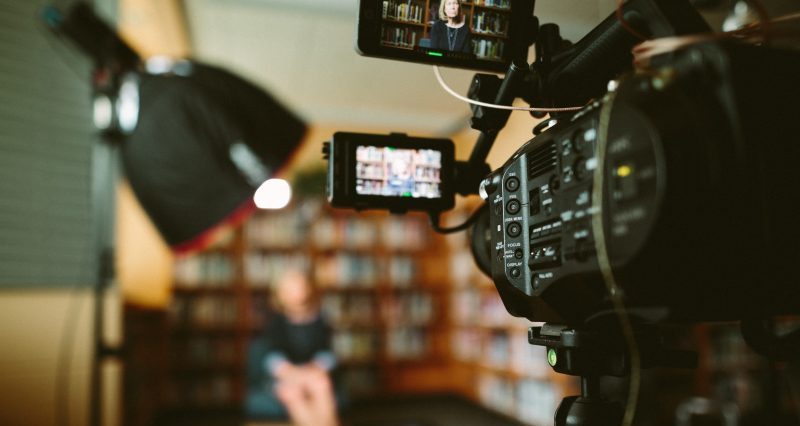Speaking to the news media can be a tricky business. This is especially true if you are not a professional communicator, former journalist, or possess other expertise in media relations and communications.
Therefore, the following 10 best practices to master media interviews — from traditional media to digital media — should prove beneficial if and when you must face the so-called media “beast.”
Prepping for the Interview
1. Agree to the angle and focus of the media interview prior to conducting it. You can and should request a pre-interview phone call with any media outlet to discuss the parameters and terms of the interview, such as what type of attribution you will use (on-the-record, on background, etc.).
You may even want to request questions in advance. Although many media outlets prohibit reporters from providing questions in advance, not all do. Thus it never hurts to ask because the more prepared you are, the more likely your media interview will be successful.
2. Provide substantive background information. This is especially relevant if no pre-interview exchange has been arranged. Potent background info will serve as a preface to the main points you plan on making during the media interview. Remember that not all reporters are subject matter experts.
Therefore, it’s part of your job to help educate them about the issues from your organization’s standpoint. Moreover, this approach may help deflect negative or loaded questions in advance, as well as set the stage to make your case in the strongest and most persuasive manner.
3. Anticipate likely questions — and answers — in advance. This is absolutely necessary if the reporter rejects your request for questions in advance or fails to provide appropriate information about the angle and focus of their story.
Think about what points and counterpoints you want to make. What headline would you like to see? Don’t just “wing it” with media interviews, or the resulting story may cause more harm than good for your organization and its brand image.
4. Draft talking points. This should be done in consultation with legal, policy and communications experts within your organization. Make sure to include at least two to three major points that you want to be reflected in the resulting story. Putting your points down on paper will serve as a vital reference during and after the interview, in addition to enhancing your focus and comfort level.
5. Develop proof points. These are statistics and anecdotes to support your main talking points. Don’t just explain your points to reporters, but also provide factual evidence or tell a story to reinforce the validity of your main message.
6. Establish a rapport with the media. Find out some personal information about the journalist interviewing you. How long have they been with the media outlet? What was the last story they reported on?
Any sincere praise or recognition you can offer to the media will often smooth relations going forward. Perhaps there are some common interests you share or related personal background information — such as where you grew up, went to school, etc. This will help lay the foundation for positive media relations.
7. Practice, practice, practice. If you’re a native New Yorker, like me, you may recall that this is the answer to the hypothetical question, “How do you get to Carnegie Hall?” Rehearse your answers and do a mock interview with the communications team in your organization.
If you are conducting a broadcast interview, then tape-record your likely responses and even practice in front of a mirror. Remember that most communications are non-verbal in nature.
What to Remember During the Media Interview
8. You are in control. Take charge of the interview before the reporter does. Don’t let the media dictate the interview agenda. Deflect questions you don’t want to answer by reiterating your main points. Repetition is key even if you sound like a broken record.
Moreover, don’t feel compelled to respond to negative or loaded questions. Rather, respond with a deflecting statement, such as those listed below. Then repeat your key talking points and proof points (data, anecdotes or stories). Deflecting statements include:
- “Let’s look at this issue from a broader perspective…”
- “There is an equally important concern here…”
- “Let’s not forget the underlying problem at hand…”
- “That point may have some validity, however, let’s look it a different way…”
9. Ask that a question be repeated or restated. This is especially important if questions are unclear, loaded or surprising. You may need a few seconds to formulate your answer if unprepared for the question.
You may also give your answer a second time (and that answer should be used) as new thoughts and points may surface as the interview progresses. To repeat or expand on an answer already given, use some of the following phrases:
- “In addition to what I noted before…”
- “On second thought, let me provide a more complete response…”
- “Please scratch what I said earlier, what I meant was…”
- “Let’s go over your second question again. I want to point out that…”
10. Maintain eye contact and avoid distracting gestures. Focus on either the interviewer (preferably) or the camera, but not both. Do not glance back and forth or continually shift your eyes from side to side. Do not talk with your hands, per se, as this looks defensive and awkward on camera.
If needed, keep your hands tightly clasped on your lap. Most importantly, always maintain focus and appear confident, calm, cool and collected. Reporters may detect weakness like sharks smelling blood in the water. Don’t give a reporter bent on sensationalism the chance to go in for the kill.
11. Bonus point: If all else fails and a reporter is relentlessly pounding away with negative questions, then you may need to simply stop the interview in midstream. Don’t simply give in to biased questions and provide the answers they want (at your expense) — which may be detrimental to your message and organizational brand. Rather, as a last resort, simply call off the interview, get up and walk away.
This may also be necessary if a reporter or producer continually asks questions that both sides previously agreed would not be asked, or if a reporter engages in unprofessional conduct and “gotcha” questioning.
By adhering to these points you will be ready to face the “Beast” head on and leverage any media interview to make the best case for yourself, your organization, its mission and brand image.
This blog post first appeared on LinkedIn and is featured on the Public Relations Channel.
All views and opinions are those of the author only and are not official statements or endorsements of any public or private sector employer, group or related entity.





That’s great guidance, David! I graduated some 23 years ago, but this looks familiar to me. You must have gone to J School at the University of Maryland at College Park and gotten some good experience in the process! 😉 Keep up the great work! Fear the Turtle!
David – I have not had the “privilege” of working with the media, yet. If the opportunity ever comes around, I will know how to prepare myself. Thanks for contributing!
TED & RYAN:
Thanks so much for your kind words. It’s a real pleasure to receive such positive feedback from you guys, which I greatly appreciate.
RYAN: Working with the news media is all in the eye of the beholder. Some days it can be rewarding, other days not so much. It’s a “dirty job” but someone has to do it!
TED: We must be pretty close in age. Well, at least we have ADEA protection now! Yes, I am a proud UMD J-school alum. Those were the days!
Thanks again, gentlemen, for all you do!
@DBGrinberg
This is a good start! In one of my former lives, I used to help set up media interviews for this department head, because he was the “talking head” everyone wanted on camera. But because no one can answer every question, I convinced this person to have real Subject Matter Experts standing by.My boss felt more comfortable with this approach and the media loved the opportunity to get additional information.
JON: Thanks so much for the constructive comment. Subject Matter Experts (SMEs) should be an integral part of prepping for any media interview, as I noted:
But in addition to drafting talking points, it makes good sense — as you emphasize — to have SMEs nearby during an interview, especially if it’s taped and not live. In fact, I recall one interview I managed for a federal agency with the late-great Mike Wallace of CBS “60 Minutes”. The interview was taped and we had SME attorneys in the room, just in case.
Well, as it so happened, the agency head being interviewed by Mr. Wallace became flustered after one of the questions. Thus we paused the interview and she yelled, “Where are my lawyers?!” Fortunately, they were right there behind the white hot glare of the klieg lights.
Therefore, thanks for reiterating this important point, Jon. Your valuable feedback is appreciated!